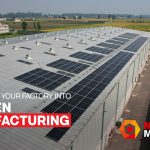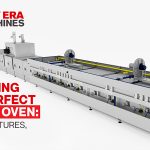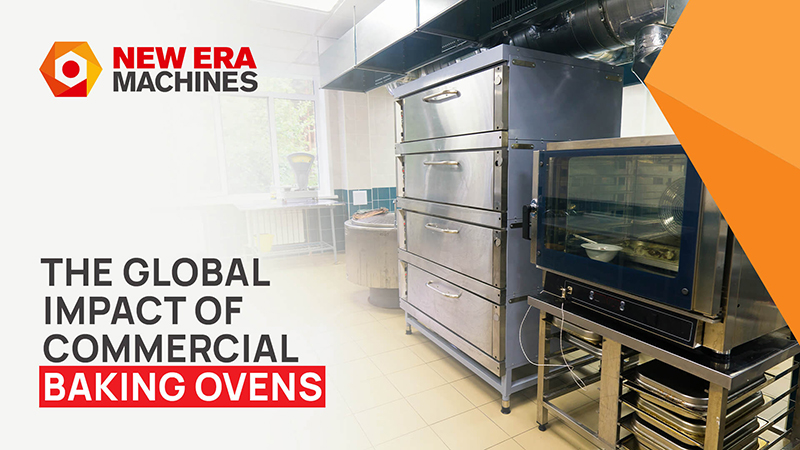Commercial baking ovens have revolutionized the global market, significantly influencing various sectors and industries. Their widespread adoption has transformed the baking industry, leading to increased production efficiency and quality. Moreover, the market for commercial baking ovens has experienced notable growth due to several factors that are reshaping the landscape of the bakery and food service sectors.
Commercial Baking Ovens Market Growth Drivers
Technological Advancements
Continuous innovations in baking oven technology have been pivotal in enhancing baking efficiency and product consistency. Advanced heating mechanisms and automated controls have revolutionized the way bakery ovens operate. These technological advancements not only improve the quality of baked goods but also streamline production processes, making it easier for bakery equipment manufacturers to meet the high demands of the market.
Increasing Demand for Convenience Foods
The rising consumer preference for ready-to-eat and convenience foods has significantly boosted the demand for commercial baking ovens. In the fast-paced world of today, consumers seek quick and easy meal options, and this trend has propelled the need for efficient bakery machinery. The bakery and food service sectors, in particular, have seen a surge in demand for products that can be quickly prepared and served, driving the growth of the commercial baking oven market.
Expansion of the Food Service Industry
The growth of the food service industry, which includes bakeries, restaurants, and cafes, has created a substantial market for commercial baking ovens. As consumer demand for baked goods continues to rise, food service establishments are increasingly investing in advanced baking equipment to meet this demand. This expansion has provided industrial bakery equipment manufacturers with significant opportunities to cater to a growing market.
Commercial Baking Ovens Market Opportunities
Market Expansion in Developing Regions
Developing regions present vast opportunities for market expansion. In these areas, the demand for baked goods is steadily increasing, driven by changing consumer lifestyles and preferences. As more people in developing countries embrace Western-style diets, the need for commercial baking ovens is on the rise. Bakery equipment manufacturers can capitalize on this trend by expanding their presence in these emerging markets.
Integration of Smart Technologies
The integration of smart technologies in commercial baking ovens offers exciting opportunities for manufacturers. IoT-enabled ovens and cloud-based monitoring systems are becoming increasingly popular, allowing for greater control and efficiency in the baking process. These innovations enable manufacturers to offer cutting-edge solutions that enhance their market competitiveness. By incorporating smart technologies, bakery machinery can achieve higher levels of precision and automation, meeting the evolving needs of the
Product Diversification and Customization
With evolving consumer preferences and dietary trends, there is a growing opportunity for manufacturers to develop specialized baking ovens tailored to specific product requirements. For instance, the demand for gluten-free or vegan baked goods is on the rise, and manufacturers can tap into this market by offering customized baking solutions. This approach not only meets the diverse needs of consumers but also helps industrial bakery equipment manufacturers to differentiate their products in a competitive market.
Commercial Baking Ovens Market Challenges
High Initial Investment
One of the significant challenges in the commercial baking oven market is the high initial investment required. The capital-intensive nature of these ovens poses a barrier for small and medium-sized enterprises (SMEs) looking to enter the market. This financial hurdle can limit their ability to compete effectively with established players. However, by offering financing options or leasing programs, manufacturers can help SMEs overcome this challenge and gain access to advanced baking technology.
Regulatory Compliance
Adhering to stringent food safety and quality regulations adds complexity to the manufacturing process of commercial baking ovens. Ensuring compliance with these regulations can increase production costs for baking oven manufacturers. However, maintaining high standards of safety and quality is crucial for building consumer trust and loyalty. By investing in compliance measures and staying updated with regulatory changes, manufacturers can navigate this challenge effectively.
Competition from Substitutes
Intense competition from alternative baking methods, such as microwave ovens and convection ovens, poses a challenge to the growth of the commercial baking oven market. These substitutes offer different advantages and are often perceived as more convenient by some consumers. To address this competition, manufacturers need to differentiate their products effectively. Highlighting the unique benefits of commercial baking ovens, such as their ability to produce consistent and high-quality baked goods, can help mitigate the impact of substitutes on market growth.
The global market for commercial baking ovens is experiencing significant growth, driven by technological advancements, increasing demand for convenience foods, and the expansion of the food service industry. However, manufacturers must navigate challenges such as high initial investment, regulatory compliance, and competition from substitutes to maintain their market position. By seizing opportunities in developing regions, integrating smart technologies, and diversifying their product offerings, bakery equipment manufacturers can continue to thrive in this dynamic market.
The ongoing evolution in the confectionery and bakery products industry underscores the importance of innovation and adaptability. As consumer preferences continue to change, the ability to offer customized, high-quality baking solutions will be key to sustaining growth and success in the commercial baking ovens market.


